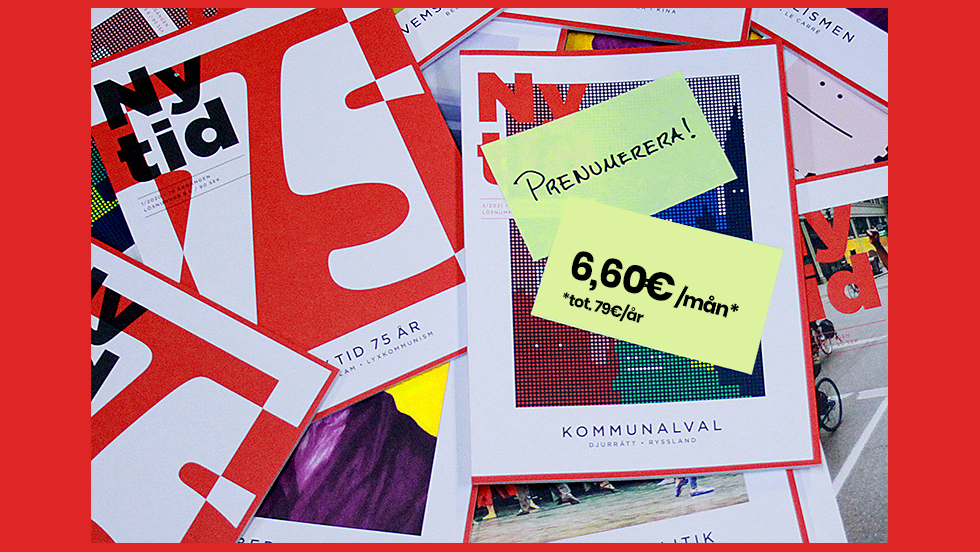Presidentvalet i Finland gick helt enligt manuskriptet: med en förkrossande majoritet på över 62 procent av rösterna återvaldes den sittande regenten Sauli Niinistö för en andra period i valets första omgång. Detta markerar första gången sedan valreformen 1988 som en finländsk president valts genom folkomröstning direkt i valets första omgång. Sedan den mytomspunne Urho Kekkonens tid har ingen president i Finland ridit på såpass höga opinionssiffror att de börjar närma sig de röstetal som vi är vana att se i auktoritära stater som Turkiet och Ryssland.
Att en presidentkandidat i valets första omgång får över 60 procent av rösterna är ytterst ovanligt i ett demokratiskt, transparent samhälle. Hur valresultatet tolkats har hängt mycket på om den som gjort tolkningen själv röstade på Niinistö eller inte. I Svenska Yles valvaka hittade samlingspartisten Linda Karhinen inte ord för att uttrycka sin entusiasm, och det blev under kvällen mer än tydligt att det var en glädjens dag inte bara för Finland, utan kanske till och med hela mänskligheten. Den motsatta tolkningen har varit att den finländska demokratin nu officiellt är död och begraven och att vi nu borde byta landets namn till Sauliarabien. Båda tolkningarna slirar avsevärt.
Problemet med det Putin-aktiga röstetalet för Niinistö är inte i första hand att det var Niinistö som blev vald, oberoende av vad man anser om honom som politiker, president eller människa. Problemet är att i ett så politiskt splittrat land som Finland är i dag, bygger den demokratiska processen på ett knuffande och dragande mellan politiska läger. Med denna dragkampsprocess följer också en samhällelig diskussion där viktiga frågor genomlyses, utreds och granskas från olika synvinklar. Idealet är också att politiker lyssnar på expertutlåtanden och tar till sig vetenskaplig analys. Olika röster i samhället företräder olika intressegrupper, har olika mål och olika ideologiska infallsvinklar. Få frågor med, säg åtta olika svarsalternativ, som ett presidentval, får 60 procent av folket enat bakom ett och samma alternativ. När detta sker, bör varningsklockor ringa för att något inte står rätt till med demokratin. I det här fallet kan vi ändå kanske trösta oss med att valet av presidenten har blivit en nästan helt icke-politisk fråga.
Presidenten har blivit en symbolisk galjonsfigur, och kan således locka anhängare över de ideologiska gränserna. I sin kolumn på sidan 58 i detta nummer hoppas svenska Vänsterpartiets ordförande Jonas Sjöstedt på att Sverige en dag också ska kunna välja sin president. Frågan är ändå om inte Sverige helt borde hoppa över presidentskedet då det avskaffar kungahuset, och i stället satsa på ett helt parlamentariskt styre. HBL:s kulturchef Fredrik Sonck kallade i en krönika 16.1 presidenten för ”en blindtarm i Finlands demokrati”, och det ligger nära till hands att fråga sig på vilket sätt Finland gynnas av att sätta sin tilltro till en skenpolitisk aktör av den typ som Finlands president i dag är. Kungen är åtminstone ärligt rikets stora hovnarr. Kanske Finland i stället borde införa monarki?
Janne Wass
är Ny Tids chefredaktör



1 kommentar
Certainly it is unusual that in a democratic system a president is re-elected immediately and with over 60% of the votes, but I cannot agree with any of the analyses and comments which I have seen so far in HBL or Ny Tid. My reasons are psychological ones.
The idea of making ”presidenten till hovnarr” is perhaps NOT QUITE wrong, because one of the jobs of the hovnarr was to say things (perhaps in a funny way, but anyway) which were true but so ”politically incorrect” that nobody else was daring to say them openly. And such a person can easily become useful in some emergency situation, so-to-say as an opinion-making authority in reserve. For being such an authority there are, though, conditions: This authority has mostly to keep quiet (while in small ways cultivating the good will and respect of the population), so that a situation in which the authority finally speaks out is perceived as one of exceptional importance. Further, the authority has to keep FAR away from the usual parliamentary business with all its usual (often rather dirty) tricks, so that the opinion of the authority cannot be interpreted as a manoeuvre for giving one of the parliamentary parties an advantage over some other party, but can be accepted as a contribution to the welfare of ALL the nation. – For comparison, try to imagine that some parliament had made, say, Ben Zyskovicz president (with the result that the electorate would interprete ANY of his public pronouncements as a manoeuvre to give Kokoomus some advantage at the expense of other actors), and also think of Trump, who just recently used the school massacre in Florida to try and discredit the FBI for paying attention to Trump’s Russian connections.
Altogether, even in a democracy it can become useful to have some authority who carefully preserves a reputation of being independent, uncorruptible, and also unaffected by the (sometimes less-than-dignified) fights between the parliamentary parties and factions, thus able to care about the welfare of the WHOLE nation (that the MOTIVATION to care about the welfare of the nation be demonstrated continuously is also desirable) – all this for avoiding to become a target for politikerförakt. Such an authority, once established, would then be in a position to (NOT TOO OFTEN) go public about really important matters, such as the climate change, the refugee problem, even about NATO. – Progressives may easily think that such a role should rather be played by scientists, but unluckily scientists have often difficulties to agree, also difficulties to have their views adequately reported by the media, and that Big Money has meanwhile its methods to recruit scientists for its purposes is not either news any more. Thus, it may in fact not be a bad idea to have some king or queen (who tend to be financially and otherwise independent), or at least a president who is elected by the people (and one can, in this context, think it wise that Niinistö was NOT posing as a representative of a party, but of a very own organization).